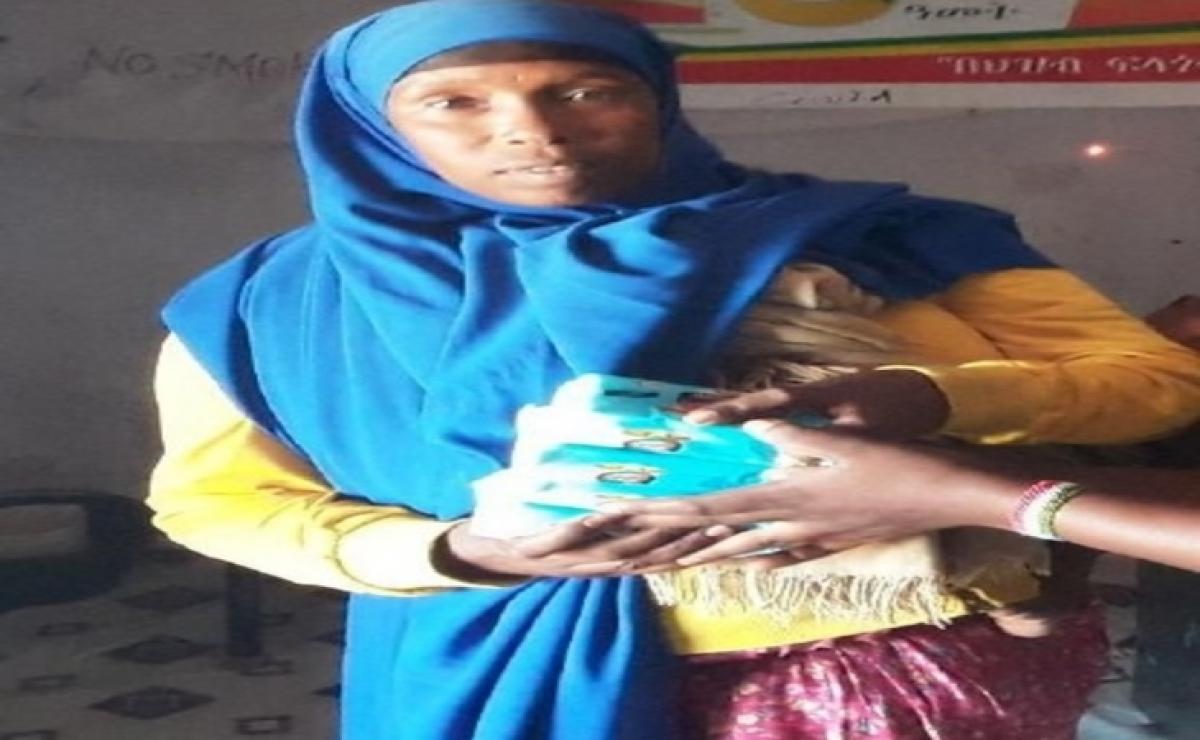Case story of Hamda Abdi ERM 7

’’My capacity increased to overcome the phobia due to COVID-19’’
Hamda Abdulahi is a 38 years old mother of 6 children – three sons and three daughters and a grandmother of one son and two daughters. She lives in Sheder Kebele, a small town in Awbare Woreda in the Somali Regional State, found at a distance of 54 Km away from Jigjiga towards North direction. It is located on the border of Somali regional state and Somalia. Sheder is one of the entry points from Somalia and where one of the refugee camps is found. Like other parts of the Somali region, many of the people in Sheder Kebele earn their livings as pastoralists i.e. herding cattle and shots on the open plains. However, a change in climate and consequently drought, degradation of the rangelands, and livestock diseases are increasingly threatening this way of life aggravating the level of poverty, food insecurity, and malnutrition among the predominantly pastoralist households. COVID-19 has become another risk factor threatening the life and livelihoods of the community.
In response to the COVID-19 outbreak in the country, LWF implemented a project entitled “Acute Emergency Response to people affected by COVID-19 Pandemic in Awbarre, Kebribeyah and Wuchale woredas bordering Somalia and Quarantine Center in Jijiga” from June 18 to September 17, 2020 with the financial support of European Union Civil Protection and Humanitarian AID (ECHO) through IRC.
The project targeted a total of 70,291 people (Female 35,441, Male 34,850) through multiple actions of capacity building, PPE and NFIs support, awareness-raising campaigns, and radio transmission of messages on COVID-19 preparedness and prevention.
During the assessment, the vulnerable groups identified as most exposed to the pandemic in the intervention woredas are women because women in the Somali region are often the primary caretakers, increasing their potential exposure to the virus exacerbating the health risk to themselves and their family members. They largely interact and work as informal vendors whose incomes are directly impacted by restrictive measures.
One of the beneficiaries of the response activities as part of the ERM 7 project is Wzo. Hamda Abdi Ali, married and a mother of 6 living in Shedder kebele of Awbarre Woreda in Fafan Zone, Somali Regional State.
‘‘It was when LWF started to run project activities in response to COVID-19 outbreak prevention that things started to improve for me’’ said Hamda. She started speaking by recalling her experience in the past when her children got sick from diarrhea and vomiting which resulted in her children facing electrolyte imbalance and dehydration. She said that she doesn’t ever want to see her children getting sick from such kind of infectious and communicable diseases. Hamda said that the COVID-19 outbreak has created fear and havoc to her family and her neighborhood due to the already poor hygiene and living conditions. She added ‘‘After I received the hygiene NFI support and the knowledge about COVID-19 that I acquired from the LWF’s hygiene promotion campaigns, I felt confident that we can overcome the fear and phobia developed among my family and my fellow community members due to the pandemic.’’
As it is for many of the people in the area, Hamda said “I had little awareness about the pandemic, the way it is transmitted and on how to protect myself and my children.” Because of the low level of understanding of hygiene practices, most people are already susceptible to viral infections even before the emergence of COVID-19 as one big health concern. The awareness creation sessions through megaphones on market days and radio broadcasting helped many people to better understand ways of COVID-19 transmission and the precautionary measures that should be taken. The messages of the radio transmission focused on the demonstration of hand washing and social distancing and myths around COVID-19.
“In addition to the valuable information I received from the LWF and frontline health workers, I also received 1,000 grams of soap which also helped me to wash my hands and assist my children to wash their hands to maintain personal hygiene” said Hamda.
The project has played a crucial role in improving the hygiene practices among the targeted households in the woreda and to protect themselves from COVID-19 infection. She said ‘‘the staff also informed us why and how to keep physical distances which are now practiced by many in my area. Finally, I would like to thank LWF for the support and for advising us on what to do and what not to do in view of the pandemic. Thanks for the messages received, I now wash my hands whenever I get back home from market or whenever I think I have contact with something.’’
https://ethiopia.lutheranworld.org/content/case-story-hamda-abdi-erm-7-41-0

